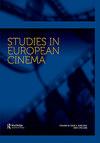The Uncanny Heimat: longing for home in Barbara (Petzold, 2012)
IF 0.2
0 FILM, RADIO, TELEVISION
引用次数: 0
Abstract
ABSTRACT In Christian Petzold’s 2012 film Barbara, a film about a disgraced East German doctor who has been demoted to work in a provincial hospital, borders and boundaries abound. While moral, ethical, and personal boundaries are frequently crossed in the film, the German-German border remains somewhat of a mystery. It is a border that cannot be spoken of, rendering not only the characters mute, but also any visual representation impossible. Using the understated realism of the Berlin School of filmmaking, this paper argues, the film visualizes instead an ambivalent approach to the German notion of ‘Heimat’: rather than being the homely, safe haven it is usually depicted as, Barbara’s country of birth becomes ‘unheimlich’ – uncanny, a place of invasion, surveillance and confinement. And yet, in the end, Barbara chooses to stay there, giving up her place in an escape plan to a pregnant teen patient instead. The film thus throws up more questions than it answers, most crucially about the human capacity to live within even the most personal constraints.Uncanny Heimat:渴望在芭芭拉的家(Petzold,2012)
摘要在克里斯蒂安·佩佐德2012年的电影《芭芭拉》中,一位名誉扫地的东德医生被降职到一家省级医院工作,这部电影充满了边界和界限。尽管影片中经常跨越道德、伦理和个人界限,但德国与德国的边界仍然有些神秘。这是一个无法言说的边界,不仅使角色静音,而且任何视觉表现都是不可能的。本文认为,这部电影使用了柏林电影制作学院低调的现实主义,反而对德国的“Heimat”概念采取了矛盾的态度:芭芭拉的出生国不再是人们通常描绘的温馨、安全的避难所,而是变得“不和谐”——不可思议,是一个入侵、监视和禁闭的地方。然而,最终,芭芭拉选择留在那里,将自己在逃跑计划中的位置让给了一名怀孕的青少年患者。因此,这部电影提出的问题比它回答的问题更多,最关键的是关于人类在最私人的约束下生活的能力。
本文章由计算机程序翻译,如有差异,请以英文原文为准。
求助全文
约1分钟内获得全文
求助全文

 求助内容:
求助内容: 应助结果提醒方式:
应助结果提醒方式:


